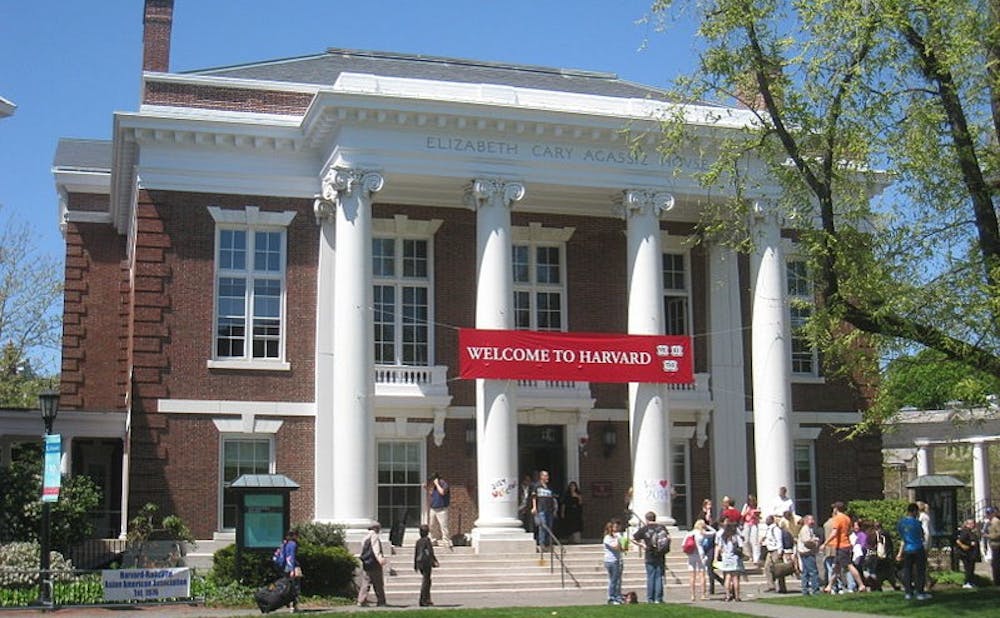An admissions lawsuit is rattling Harvard, and professors at Duke are taking sides.
The lawsuit claims that Harvard discriminated against Asian-American applicants in its admissions practices by giving them lower personality ratings as part of a soft quota—an accusation that hinges on the expert testimony of Peter Arcidiacono, a professor of economics at Duke.
Two other professors, Walter Dellinger and Helen Ladd, have submitted briefs defending Harvard in less direct ways, whether by questioning the suit’s legitimacy or by supporting the university’s own number-crunching methods.
The trial is scheduled to begin Oct. 15, 2018.
Peter Arcidiacono
Arcidiacono is the labor economist hired by Students for Fair Admissions, the anti-affirmative action group bringing the lawsuit, to analyze Harvard’s admissions data.
According to his analysis, Asian-Americans scored higher than other applicants on grades, test scores and extracurricular activities. But they consistently received lower marks on the “personal rating,” which includes traits like “positive personality,” “kindness” and “likability.”
“The difference is notable because similar ratings by teachers, guidance counselors and alumni interviewers do not show nearly as much of a difference between [Asian-American and white applicants],” Arcidiacono wrote in his report.
This penalty against Asian-Americans hurt their chances of admission to Harvard, according to his analysis. Legacy and athlete admits could not explain the disparity.
Arcidiacono has been controversial in the past. In 2012, he co-authored a study arguing that black and legacy students were more likely to switch to easier majors, such as in the humanities and the social sciences, prompting the Black Student Alliance to protest the study.
Walter Dellinger
Dellinger, Douglas B. Maggs professor emeritus of law, is a former acting solicitor general under the Clinton administration. In a friend-of-the-court brief filed July 30, he argued against SFFA’s lawsuit on constitutional grounds, calling the organization—which invites rejected college applicants to join for a $10 fee—a “transparent and novel attempt” to skirt the rules on who can bring federal lawsuits.
“[I am] aware of no similar organization created for the exclusive purpose of litigation, which provides no other benefits or services to its ‘members,’ but that has nevertheless been granted the ability to sue in its own name,” Dellinger wrote in the filing.
His claim on SFFA’s legal standing is the same one Harvard made in its many letters asking the judge for summary judgment—that is, to decide the case without a trial. The Civil Rights Division of the U.S. Department of Justice publicly opposed the request in an Aug. 30 filing.
Helen Ladd
Ladd, Susan B. King professor emeritus of public policy and economics, is one of 18 economists who submitted a brief Sept. 6 supporting Harvard.
Harvard ran its own analysis through David Card, professor of economics at the University of California, Berkeley. Although he and Arcidiacono used the same data, they reached very different conclusions—according to Card, Harvard did not discriminate against any applicant.
“Prof. Arcidiacono reveals a significant misunderstanding of Harvard’s admissions process,” Card wrote in his report.
In official court filings, they slammed each other’s findings as false, and Ladd and other scholars, including former Federal Reserve Chair Janet Yellen, rose to Card’s defense.
“[We] share the view that Dr. Card is one of the most outstanding and respected scholars in the field of econometrics and applied economics,” Ladd and others wrote in the brief. “His statistical analyses in this case were methodologically sound, and the criticisms of his modeling approach […] are not based on sound statistical principles or practices.”
Get The Chronicle straight to your inbox
Signup for our weekly newsletter. Cancel at any time.

